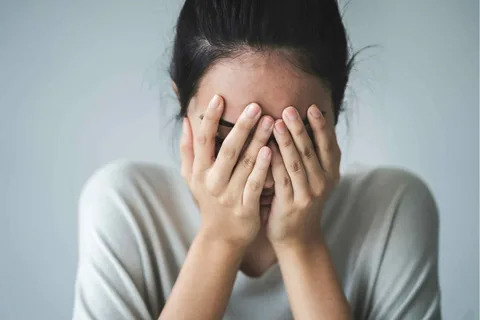Have you ever felt a sudden surge of overwhelming anxiety and fear?
Imagine this scenario: you’re preparing for a presentation, and suddenly, your heart starts pounding, your palms get sweaty, and you feel a paralyzing terror as if something horrible is about to happen.
These intense moments, known as anxiety attacks, can feel incredibly powerful and frightening.
What is an Anxiety Attack?
Anxiety attacks involve a sudden influx of fear and discomfort that can peak within minutes. These episodes can happen unexpectedly or can be a direct reaction to a perceived threat or a stressful situation.
Symptoms might include palpitations, sweating, trembling, shortness of breath, a sense of impending doom, or even feelings of detachment from reality.
Understanding what triggers your anxiety attacks and knowing the strategies to cope with them can significantly improve your quality of life. So, what can you do to manage these intense feelings?
Recognize the Signs
The first step in managing anxiety attacks is to recognize the signs and acknowledge that you are experiencing an anxiety attack, not a life-threatening situation. This recognition can help you focus on techniques to reduce the intensity of the episode.
Implement Grounding Techniques
Grounding techniques can help distract you from the anxiety and bring your focus back to the present. This can include sensory awareness exercises like identifying five things you can see, four things you can touch, three things you can hear, two things you can smell, and one thing you can taste. Such exercises help divert your attention from the cause of the anxiety.
Controlled Breathing
During an anxiety attack, your breathing may become quick and shallow, which can increase fear and physical discomfort. Controlled breathing exercises can help.
Try slowly inhaling through your nose for four counts, holding your breath for a second, and then slowly exhaling through the mouth for four counts. This technique helps maintain a regular intake of oxygen and supports calming your body’s anxious response.
Lifestyle Adjustments
Incorporating regular physical activity into your routine can significantly reduce stress and improve your mood. Similarly, mindfulness practices like yoga and meditation can help you develop a better awareness of your body’s responses to stress and improve your control over them.
Professional Anxiety Treatment in Iowa
While self-help techniques can be effective, professional help is often crucial in managing anxiety disorders. Therapies like cognitive-behavioral therapy (CBT) are widely used to treat anxiety by changing negative thought patterns and behaviors. Medication may also be prescribed as part of a treatment plan.
Seek Immediate Help During Severe Anxiety Attacks
If your anxiety attacks are severe or you find it challenging to manage them on your own, it’s essential to seek professional help. Immediate treatment for anxiety attacks can prevent them from worsening and improve your long-term psychological health.
How New View Psychiatry Can Help
At New View Psychiatry, we understand that living with anxiety can be daunting. Our dedicated team is committed to providing compassionate and comprehensive treatment for anxiety attacks. We offer customized treatment of anxiety attacks that caters to the individual needs of our patients.
If you’re struggling with anxiety and need support, we are here to help. Our services are designed to empower you to regain control over your life and your mental health.
For more information about anxiety treatment in Iowa, visit our website or contact us directly. Let’s take the first step together towards managing your anxiety in a healthy and effective way.
FAQs
1. What is an anxiety attack?
An anxiety attack is a sudden and intense episode of fear, panic, and overwhelming anxiety that can involve physical symptoms like palpitations, sweating, trembling, shortness of breath, and a sense of impending doom or detachment from reality.
2. How can I recognize the signs of an anxiety attack?
The first step in managing anxiety attacks is to recognize the signs and acknowledge that you are experiencing an anxiety attack, not a life-threatening situation. Being aware of your body’s physical and emotional responses can help you identify an anxiety attack early on.
3. What are some grounding techniques for anxiety attacks?
Grounding techniques, such as sensory awareness exercises (e.g., identifying things you can see, touch, hear, smell, or taste), can help distract you from the anxiety and bring your focus back to the present moment.
4. How can controlled breathing help during an anxiety attack?
During an anxiety attack, your breathing may become quick and shallow, which can increase fear and physical discomfort. Controlled breathing exercises, like slowly inhaling through your nose for four counts, holding your breath for a second, and then slowly exhaling through the mouth for four counts, can help maintain a regular intake of oxygen and support calming your body’s anxious response.
5. When should I seek professional help for anxiety attacks?
If your anxiety attacks are severe or you find it challenging to manage them on your own, it’s essential to seek professional help. Immediate treatment for anxiety attacks can prevent them from worsening and improve your long-term psychological health. Therapies like cognitive-behavioral therapy (CBT) and medication can be effective in managing anxiety disorders.
6. How can New View Psychiatry help with anxiety attacks?
At New View Psychiatry, we offer tailored treatment for anxiety attacks that caters to the individual needs of our patients. Our dedicated team provides compassionate and comprehensive treatment, empowering you to regain control over your life and mental health.

